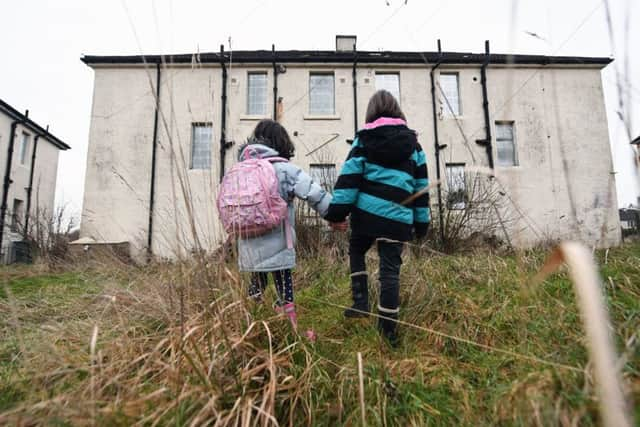Scottish Budget: Three ways it could tackle poverty '“ Emma Congreve
The Scottish Government’s draft Budget was a missed opportunity to take bold action to tackle poverty. It is crucial that all political parties use the upcoming budget negotiations to correct our country’s course.
Just over a year from the passing of the Child Poverty (Scotland) Act and following the damning assessment of poverty in the UK from the United Nations’ Rapporteur, we had high hopes of the draft Budget.
Advertisement
Hide AdAdvertisement
Hide AdThe Scottish Government has made tackling poverty a top priority, but platitudes and promises are not always making the transition into real, funded policy to transform people’s lives.


Rhetoric does not help you if you are trying to decide whether you can afford to take a bus to work or pay for your child’s lunch.
While ministers are right to restate their commitment to building more affordable homes, expanding childcare and helping parents into the workplace, we will not solve poverty merely with reannouncements of existing policy.
It’s unacceptable so many children are living in poverty in Scotland – and the forthcoming Budget negotiations must right that wrong.
Living in poverty can affect every aspect of family life. In the recent Joseph Rowntree Foundation report into poverty, we spoke to a single mother, Hazel, in Fife who is a care assistant with two teenage children.
She told us: “If I compare things to an object it would be a hamster’s wheel. No matter how hard I work and how much I push myself, I still feel I am getting nowhere.”
Too many families in poverty are faced with impossible choices, balancing paying the rent with the cost of childcare and being able to get to work, as essential costs rise.
Every decision is finely balanced – do you buy fresh food or put the heating on? Everywhere they look, families can be restricted and restrained by poverty – but we know it can and must be solved.
Advertisement
Hide AdAdvertisement
Hide AdOpposition parties will now play a key role in shaping the final Budget put before Holyrood and together, the parties must ensure the proposals avoid a step back in its fight against poverty.
The Scottish Government now has an increasing range of choices about how it raises and spends money. But local government delivers critical support for low-income families, such as housing provision, local bus services and out-of-school care.
To keep these families from being swept into poverty, they need adequate funding. Councils have been faced with continually squeezed budgets for day-to-day spending on existing services with little, if any, recourse to tax-raising powers.
Council tax reform will rightly be a key area of the budget negotiations. Currently, our evidence shows that falling behind with council tax, and harsh recovery of the money that is owed, is one of the key causes of destitution – where people regularly lack the ability to keep a roof over their head, feed themselves and keep dry and clean. Any reform to the system must ensure that there is a proper anchor for low-income households in difficulty so that they all receive the support they need.
There are steps ministers can take now to ease the strain on household budgets. First of all, a quick and much-needed fix would be to increase the thresholds for the council tax reduction scheme in Scotland. This would ensure that working families in poverty are able to keep more of what they earn before they are asked to pay towards their council tax. Doing so could buy the Scottish Government and partners the time they need to develop and implement long-term reforms.
Secondly, social security is another key tool that the Scottish Government can use to loosen the grip of poverty, and families should not have to wait until 2022 for the income supplement to be paid. We would like serious consideration of delivery of an interim solution that is fully funded by Scottish Government but paid locally, using the expertise of councils in this area. As well as helping people who desperately need a step up now, it would provide genuine insight and learning before permanent rollout in 2022.
Finally, our labour market is not working for hundreds of thousands of Scots. There is much that Scotland’s business owners and managers can do to get the best out of their workforce by providing compassion, flexibility and security to allow people to build a life free from poverty. But fair work requires a supporting infrastructure that the Scottish Government must do more to provide.
To make progress on labour market equality for women at work and boost their incomes requires further targeted investment in accessible, affordable and flexible childcare that can respond to the realities of the local jobs market, particularly in lower wage sectors. More investment in employability services is vital in breaking down physical and mental barriers, especially for those with long-term health conditions or disability. The Scottish Government also needs to look seriously at whether transport systems and concessions support those who need help the most.
Advertisement
Hide AdAdvertisement
Hide AdWe all want to live in a society where nobody is worrying how they will get by from one day to the next. The true test of this Government will not be its words but its actions to support the poorest children in our society.
Emma Congreve is senior economist at the Joseph Rowntree Foundation
